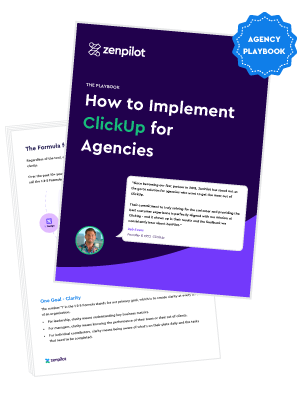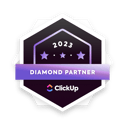How to Communicate Inbound Funnel Building to Clients.
To chat with Gray and have ZenPilot lead your team through the last project management implementation you'll ever need, schedule a quick call here.
We’re talking inbound funnels on this episode of the Happy Client Show.
As an inbound marketing professional, it’s really easy to alienate our clients with industry jargon. In most cases, you might not even realize you’re doing it. The effect on your clients is nothing positive—they might not speak up on the matter, but I can almost guarantee that the jargon confuses them. A confused client is never good, especially if you’re aiming for partnerships with longevity.
Inbound funnel building is an area of conversation that can be rather mysterious, especially for clients. As we guide our clients through the inbound partnership journey, it’s crucial for us to be able to clearly communicate funnel building.
Our clients need to understand what we’re doing and why, so they can continue to rally besides us on the way to achieving their goals.
Explaining a Funnel
Here’s a great way to break down a funnel and how it works.
When we earn a site visit and that site visit converts (on a piece of content), we need a system in place to take them from where they are today to a sales ready state. Every visit is hard earned, and every conversion is even harder earned, so we want to make sure we’re making the most of it.
When we build a funnel, we’re basing it off the Buyer’s Journey, which includes:
- Awareness
- Consideration
- Decision
When someone converts on an Awareness stage offer, it’s the job of our funnel to move them to Consideration. Once they reach Consideration, the funnel should continue to move them until eventually they become a customer.
Building the Funnel on Questions
The next thing we need to cover is how funnels are built.
We can’t build a proper funnel until we understand the specific questions prospects are asking at each stage. We need to have an outline of all questions we can gather for each.
With these guiding us, we will know what kind of content to create. This will guide our emails and how we guide a prospect from one stage to the next. What’s also important about funnel building is that every lead-nurturing email has a call-to-action (CTA) pointing to that next offer within it. Think blog post—every optimized post should be ended with a CTA that gets people in the funnel to begin with. Our work beyond that should do the same.
Some Key Points to Stress to Clients
Too often clients want to engage prospects right away. As soon as someone downloads an Awareness stage offer, they’re sending the sales team after them.
The truth, however, is that prospects aren’t always ready to talk. If we neglect letting the funnel do its job then we’re talking with leads who aren’t ready. Think of them as “half-baked.” They need to go through the funnel to solidify and further understand not only their problems, but how you’re the solution.
Leads need a chance to nurture. Let your content do the talking.
Establish a Hand off Point
We also need to discuss a follow-up process with our clients.
Once a lead becomes sales ready, a follow-up process must be in place as well. It’s no longer enough to toss leads over the fence to our clients. We need to be involved in their sales method because at the end of the day, we’re just as responsible for what happens to that lead as they are.
Discussing the Funnel Building Process
Here are the steps for creating a solid funnel:
- Hold persona interviews with your client’s persona experts
- Contact several current customers and ask person questions
- Once your questions are gathered, interview the client’s content experts to fill in the answers
- Format all of these answers into an email-nurturing cycle driven by your favorite automation platform
Next—We’re Talking Websites
There may be one huge obstacle between your client’s current situation and their success. Their website.
Next we’ll be discussing why a website must be inbound ready in order for inbound to be successful.




